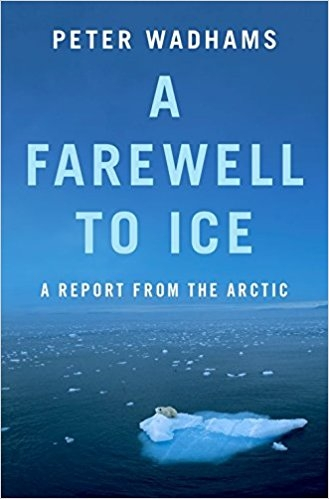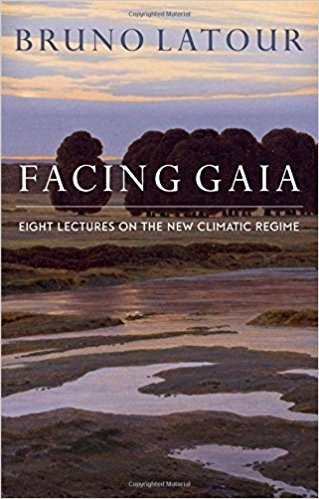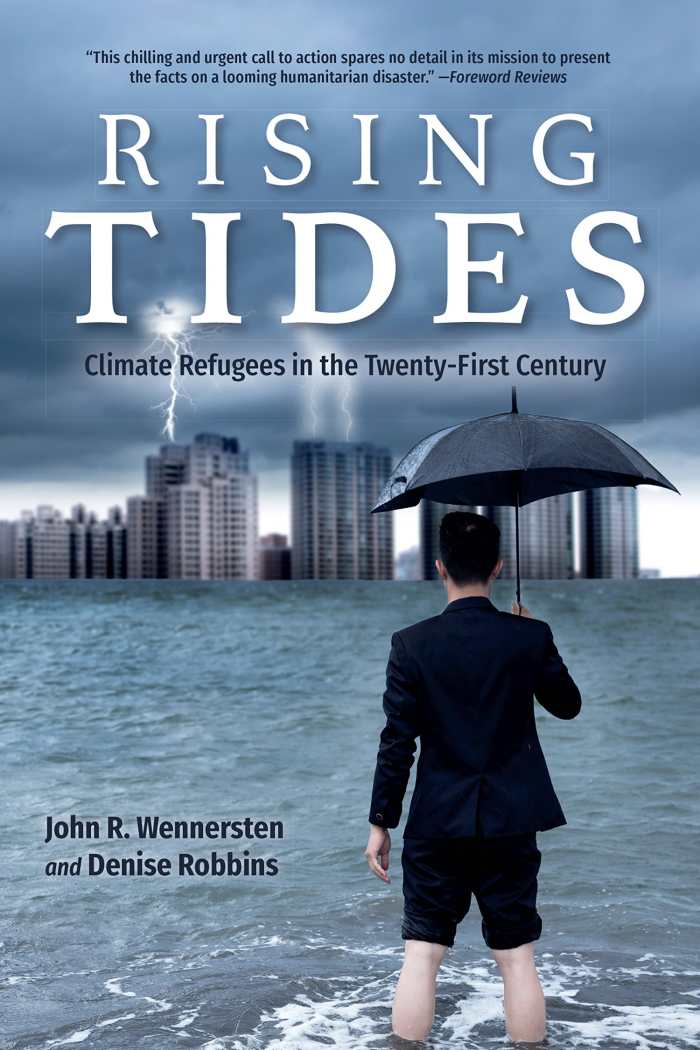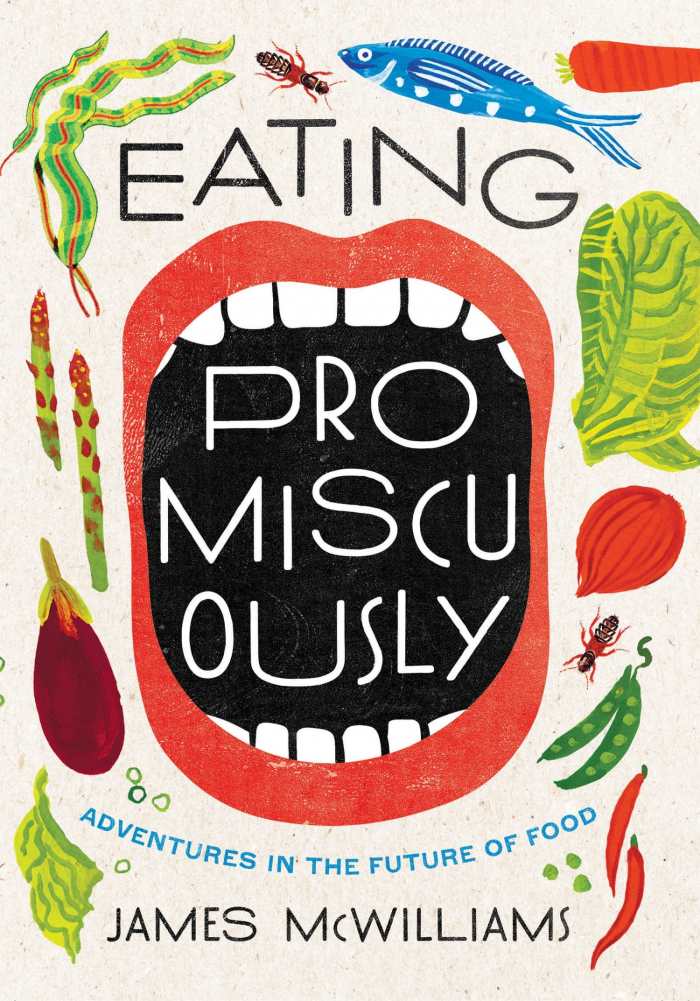Climate Change: How to Help
The climate is changing, but the ways we can help are growing. It seems that books are practically begging us to to change our ways and to commit to fixing Mother Nature. There are many paths to take; to find which one you should pursue, read one of these climate change books, reviewed in our July/August issue.
A Farewell to Ice
A Report from the Arctic

Peter Wadhams
Oxford University Press
Softcover $15.95 (256pp)
978-0-19-069115-8
Buy: Local Bookstore (Bookshop)
Though the science behind global climate change can be made simple, its scientific complexities go a long way toward putting the impending catastrophe into context. A Farewell to Ice does an excellent job of laying out and explaining these complexities in all of their nuance, going so far as to include climate math.
All this information is couched in the context of Arctic ice, but even so, the book can be considered a good introduction to the technical mechanics of climate change. While it is denser than most climate-change primers, it is also clear enough that nonscientists who are familiar with the basics will easily grasp the particulars. Coupled with in-depth historical analysis of global temperature fluctuations, this makes the book surprisingly versatile for an academic tome.
However, the content is also highly opinionated, criticizing the scientific community for relying on climate-change models rather than observation. The existence of this schism may be new information even to longtime climate-change activists, and it may constitute an important factor in a person’s ability to assess information about climate change. Even scientists already familiar with the issue should consider this book a worthwhile read.
While explicitly not written for the skeptic, this book may possess the power to sway entrenched points of view. Its presentation of global climate history does much to put the current crisis into perspective without seeming hysterical or toeing a party line. By sounding a call to action at the conclusion of the book, A Farewell to Ice ameliorates some of its grim message by presenting concrete options for nonscientist climate warriors. For this reason, it should be considered an excellent motivator and wake-up call for moderate believers in climate change.
ANNA CALL (June 29, 2017)
Facing Gaia
Eight Lectures on the New Climatic Regime

Bruno Latour
Polity
Hardcover $60.99 (300pp)
978-0-7456-8433-8
Buy: Local Bookstore (Bookshop)
Organized into roughly contiguous “lectures,” Facing Gaia is an unusual and academic examination of climate change and humanity’s place in nature. In contrast to many other emotional, urgent, and even panicky examples of literature on the subject, this piece is detached and intellectual, coolly humorous, and very thoroughly footnoted.
The book primarily covers religious, philosophical, and linguistic analyses of human reactions to nature and climate changes. It is heavily influenced by the Gaia theory, originally put forward by inventor James Lovelock, which states that the Earth can be seen as a single organism. While acknowledging the scientific bases of the theory, the book often examines its subject through a philosophical and linguistic lens. The idea that the language around a phenomenon is what makes it real—and manageable—to human society functions as a major theme.
In an era when climate conversations quickly collapse and skeptics are able to dominate the discourse both rhetorically and politically, this book is timely. It focuses less on the ecological disaster itself and more on how humans feel and think about it. The author has enough conviction and clarity of thought around these complicated topics that the book is comprehensible, though difficult. This is a book that assumes a certain amount of knowledge on the part of its reader, and even graduate students may find it challenging at times.
Despite this, Facing Gaia is a rewarding read that explores deep new layers to the climate crisis that is not only happening in our environment, but unfolding in understanding within our own minds. A background in Western philosophy is helpful for full appreciation of this book, but academics and interested armchair scholars should be able to enjoy it.
ANNA CALL (June 29, 2017)
Island Home
A Landscape Memoir

Tim Winton
Milkweed Editions
Softcover $16.00 (239pp)
978-1-57131-124-5
Buy: Local Bookstore (Bookshop)
Island Home is a lyrical and artistic look into the human relationship to landscape, especially in Australia. Part memoir, part ode, it combines a strong sense of place with a reflection on the personal impact of land, and of what humans lost when they separated from nature.
Structurally, Island Home is nearly free-form, drifting across periods in the author’s life in a manner that evokes a dreamscape. This fits well with the spirituality with which the author describes the Australian outback, evoking not only his own communion with the sea and sand, but the Aboriginal beliefs that attach significance to landmarks, environment, and nature. The book invokes David Mowaljarlai and other Aboriginal thinkers several times in the author’s quest to articulate his feelings about his unique island.
While many modern environmental books examine the external issues of the human relationship to nature, namely climate change, Island Home departs from this model by focusing on how the loss of a relationship to nature has impacted the inner lives of Australians. The author bemoans the fact that most Australians will live their entire lives in cities that he describes as ugly and soulless, while at the same time identifying a deep impetus for both connection and domination of the land in the national Australian spirit. Though the true character of the Australian relationship to the land ends up being a little unclear, this turns out to be a good way to describe a relationship that itself contains many contradictions and confusions.
The evocative beauty of Island Home is not to be denied. The book demonstrates a deep, sincere love of place that constitutes a refreshing break from intellectualized climate-change theses and scientific analyses of atmospheric carbon levels. Winton does not warn us about what we might lose, but shows us through his own vision. This “landscape memoir” is an excellent choice for book clubs.
ANNA CALL (June 29, 2017)
Behind the Carbon Curtain
The Energy Industry, Political Censorship, and Free Speech

Jeffrey A. Lockwood
University of New Mexico Press
Softcover $29.95 (304pp)
978-0-8263-5807-3
Buy: Local Bookstore (Bookshop)
An exploration of censorship in a rarefied economic situation, Behind the Carbon Curtain examines a number of instances in Wyoming where the energy industry suppressed artistic, social, or academic protest to environmentally detrimental practices. The book is written in an accessible style that nonetheless pulls no punches when either excoriating the energy industry or calling for action by grassroots and established parties alike.
Thorough research, including dozens of interviews, make this book a good candidate for further exploration and potentially classroom use. The book does a fine job exploring how money and economic influence may be used to effectively stop conversations before they start, examining censorship and self-censorship in political and social contexts.
Behind the Carbon Curtain also provides a good description of the history and character of the energy industry in Wyoming, which gives the situation a certain amount of perspective. The willingness of well-known fuel businesses to crush scientists, businesses, citizen activists, and even, potentially, entire communities using their economic influence is nearly as chilling as the efforts of brave individuals to stand up to these strong-arm tactics is inspirational. Among all the reasons to read this book, that might be the most important. Here is an excellent illustration of what activists are up against, a good piece of context for people who are serious about making their voices on this subject heard effectively.
The book makes it clear that censorship is a particular problem in places where a lack of economic diversity produces corporate structures upon which communities or regions may over-rely, as with Wyoming and the energy industry. This makes Behind the Carbon Curtain a particularly valuable resource for communities that find themselves in similar positions, regardless of whether or not the censored issue is environmental in nature.
ANNA CALL (June 29, 2017)
Rising Tides
Climate Refugees in the Twenty-First Century

John R. Wennersten
Denise Robbins
Indiana University Press
Softcover $20.00 (272pp)
978-0-253-02588-3
Buy: Local Bookstore (Bookshop)
This chilling and urgent call to action spares no detail in its mission to present the facts on a looming humanitarian disaster.
Climate-change warning messages too often focus on the environment without going into specifics of how humans will be hurt by global warming. Rising Tides single-handedly rectifies this issue. Meticulously researched and data oriented, it assigns concrete numbers and provable facts to an issue that policy makers should be more worried about: mass migration as a result of climate change. Exhaustively, the book covers migration as a result of farming failure, resource wars, water availability shifts, desertification, and immediate disasters, all the while factoring geopolitical, cultural, political, and environmental factors together. Thanks to an equal reliance on current events and models, as well as the authors’ thorough understanding of geopolitics, the case is beyond convincing.
This is a book that seems to have been specifically written for the international policy maker, and indeed, this demographic should consider it essential, even critical, reading. However, local and national politicians should not ignore it; Rising Tides dedicates a great deal of space to the phenomenon of internally displaced victims of Hurricane Katrina and the Dust Bowl.
Tonewise, Rising Tides is unremittingly intense. Its focus is on human suffering, emphasized by numbers but driven home by strong, active language, descriptions of the conditions of refugee life, and unabashed calls to action on the part of the international community. The fact that it is a passionate book does not at all injure it as a resource. On the contrary, the text comes across as extremely earnest, a good combination with the expertise of its research. Rising Tides is undoubtedly an alarm, but thanks to its thoroughness and currency, it reads as an important wake-up call.
ANNA CALL (June 29, 2017)
Eating Promiscuously
Adventures in the Future of Food

James McWilliams
Counterpoint
Hardcover $26.00 (352pp)
978-1-61902-735-0
There is no shortage of radical food books on the publishing landscape, but Eating Promiscuously seeks to put all others to shame. In its introduction, the author boldly states that all agriculture is a mistake, farming as an idyllic and potentially beneficial way of life is a myth, and the only proper way for humans to live is by eating a wider variety of food than is typically available from large-scale farming systems. The book proceeds to explore several alternative models of food production, from foraging in a forest to foraging highways for roadkill—personally involving the author, when possible—in the quest for a better form of food.
McWilliams is diligent in doing his research firsthand, and this results in a kind of experiential journalistic approach that is reminiscent of the work of Jon Ronson (The Psychopath Test). The effect is wildly engaging, on par with the farming manifestos of which Eating Promiscuously is critical.
However, the book consistently gets sidetracked on ethical questions of veganism. While not completely unrelated to the topic, this addition to the book’s scope narrows the book’s audience to vegans, a group to which it often seems to be speaking specifically. Worse, its tone around meat eaters is at best dismissive; do not expect unconverted carnivores to come to vegetarianism after finishing this book. Combined with a nebulous conclusion—how are we to eat promiscuously?—the result is not nearly as convincing as it could be.
This lack of conviction is something of a tragedy. Witty, accessible, and very interesting, the book addresses topics that many Americans think about a great deal, including obesity. The concept of promiscuous eating by itself seems appropriate for a minor food craze. Freegans, dulse enthusiasts, and other radical food warriors will probably enjoy it. Others will need a strong stomach.
ANNA CALL (June 29, 2017)
Anna Gooding-Call

